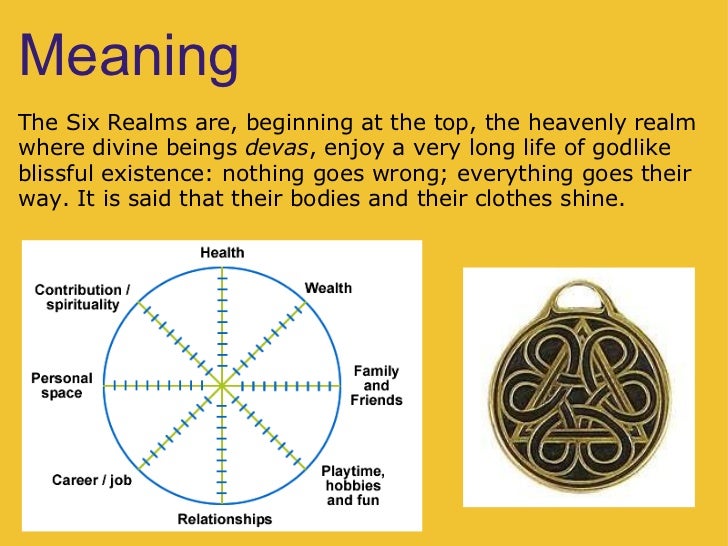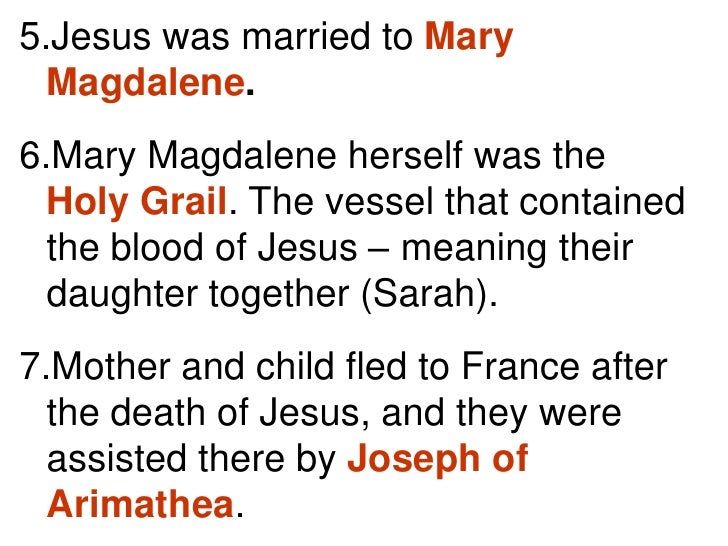A half brother.
Do we know where the line goes?
Hi Opal,
I'm unsure if a half brother or full one, indeed there seems a whole bunch of alleged brothers and sisters, in order of age, i have no idea?
So was it an Immaculate Conception for all of them or only Jesus?
Quote below:-
The identity of James, Jude and Simon
James is without
doubt the
Bishop of
Jerusalem (
Acts 12:17,
15:13,
21:18;
Galatians 1:19;
2:9-12) and the author of the first
Catholic Epistle. His identity with
James the Less (
Mark 15:40) and the
Apostle James, the son of Alpheus (
Matthew 10:3;
Mark 3:18), although contested by many
Protestant critics, may also be considered as certain. There is no reasonable
doubt that in
Galatians 1:19: "But other of the apostles [besides Cephas] I saw none, saving
James the
brother of the Lord",
St. Paul represents
James as a member of the Apostolic college. The purpose for which the statement is made, makes it clear that the "apostles" is to be taken strictly to designate the Twelve, and its truthfulness demands that the clause "saving
James" be understood to mean, that in addition to
Cephas,
St. Paul saw another Apostle, "
James the
brother of the Lord" (cf.
Acts 9:27). Besides, the prominence and authority of
James among the Apostles (
Acts 15:13;
Galatians 2:9; in the latter text he is even named before
Cephas) could have belonged only to one of their number. Now there were only two Apostles named James:
James the son of Zebedee, and
James the son of Alpheus (
Matthew 10:3;
Mark 3:18;
Luke 6:16;
Acts 1:13). The former is out of the question, since he was dead at the time of the events to which
Acts 15:6 ssq., and
Galatians 2:9-12 refer (cf.
Acts 12:2). James "the
brother of the Lord" is therefore one with
James the son of Alpheus, and consequently with James the Less, the identity of these two being generally conceded. Again, on comparing
John 19:25 with
Matthew 27:56, and
Mark 15:40 (cf.
Mark 15:47;
16:1), we find that
Mary of Cleophas, or more correctly Clopas (
Klopas), the sister of
Mary the Mother of Christ, is the same as Mary the mother of
James the Less and of Joseph, or Joses. As married
women are not distinguished by the addition of their father's name,
Mary of Clopas must be the wife of Clopas, and not his daughter, as has been maintained. Moreover, the names of her sons and the order in which they are given, no
doubt the order of seniority, warrant us in identifying these sons with
James and Joseph, or Joses, the "brethren" of the
Lord. The existence among the early followers of Christ of two sets of brothers having the same names in the order of age, is not likely, and cannot be assumed without
proof. Once this identity is conceded, the conclusion cannot well be avoided that Clopas and Alpheus are one
person, even if the two names are quite distinct. It is, however, highly probable, and commonly admitted, that Clopas and Alpheus are merely different transcriptions of the same Aramaic word Halphai.
James and Joseph the "brethren" of the
Lord are thus the sons of Alpheus.
Of Joseph nothing further is
known.
Jude is the writer of the last of the
Catholic Epistles (Jude 1). He is with good reason identified by
Catholic commentators with the "Judas Jacobi" ("Jude the brother of James" in the
Douay Version) of Luke 6:16 and Acts 1:13, otherwise known as Thaddeus (
Matthew 10:3;
Mark 3:18). It is quite in accordance with Greek custom for a man to be distinguished by the addition of his brother's name instead of his
father's, when the brother was better known. That such was the case with
Jude is inferred from the title "the brother of James", by which he designates himself in his Epistle. About Simon nothing certain can be stated. He is identified by most commentators with the Symeon, or Simon, who, according to
Hegesippus, was a son of Clopas, and succeeded
James as
Bishop of
Jerusalem. Some identify him with the Apostle Simon the Cananean (
Matthew 10:4;
Mark 3:18) or the Zealot (
Luke 6:15;
Acts 1:13). The grouping together of
James,
Jude or Thaddeus, and Simon, after the other Apostles,
Judas Iscariot excepted, in the lists of the Apostles, (
Matthew 10:4-5;
Mark 3:18;
Luke 6:16;
Acts 1:13) lends some probability to this view, as it seems to indicate some sort of connexion between the three. Be this as it may, it is
certain that at least two of the "brethren" of
Christ were among the
Apostles. This is clearly implied in
1 Corinthians 9:5: "Have we not the power to carry about a
woman, a sister, as well as the rest of the apostles, and the brethren of the
Lord, and
Cephas?" The mention of
Cephas at the end indicates that
St. Paul, after speaking of the Apostles in general, calls special attention to the more prominent ones, the "brethren" of the
Lord and
Cephas. The objection that no "brethren" of the
Lord could have been members of the Apostolic college, because six months before
Christ's death they did not
believe in Him (
John 7:3-5), rests on a misunderstanding of the text. His "brethren" believed in his
miraculous power, and urged him to manifest it to the world. Their unbelief was therefore relative. It was not a want of
belief in His
Messiahship, but a
false conception of it. They had not yet rid themselves of the Jewish
idea of a
Messiah who would be a temporal ruler. We meet with this
idea among the Apostles as late as the day of the
Ascension (
Acts 1:6). In any case the expression "his brethren" does not necessarily include each and every "brother", whenever it occurs. This last remark also sufficiently answers the difficulty in Acts 1:13-14, where, it is said, a clear distinction is made between the Apostles and the "brethren" of the
Lord.
The exact nature of the relationship between the Saviour and his "brethren"
The texts cited at the beginning of this article show beyond a
doubt that there existed a real and near kinship between
Jesus and His "brethren". But as "brethren" (or "brother") is applied to step-brothers as well as to brothers by blood, and in Scriptural, and
Semitic use generally, is often loosely extended to all near, or even distant, relatives (
Genesis 13:8,
14:14-16;
Leviticus 10:4;
1 Chronicles 15:5-10,
23:21-22), the word furnishes no certain indication of the exact nature of the relationship. Some ancient
heretics, like Helvidius and the
Antidicomarianites, maintained that the "brethren" of
Jesus were His uterine brothers the sons of
Joseph and
Mary. This opinion has been revived in modern times, and is now adopted by most of the
Protestant exegetes. On the
orthodox side two views have long been current. The majority of the Greek
Fathers and Greek writers, influenced, it seems, by the legendary tales of
apocryphal gospels, considered the "brethren" of the
Lord as sons of
St. Joseph by a first marriage. The Latins, on the contrary, with few exceptions (
St. Ambrose,
St. Hilary, and
St. Gregory of Tours among the
Fathers), hold that they were the
Lord's cousins. That they were not the sons of
Joseph and
Mary is
proved by the following reasons, leaving out of consideration the great antiquity of the
belief in the
perpetual virginity of Mary. It is highly significant that throughout the
New Testament Mary appears as the Mother of
Jesus and of
Jesus alone. This is the more remarkable as she is repeatedly mentioned in connexion with her supposed sons, and, in some cases at least, it would have been quite natural to call them her sons (cf.
Matthew 12:46;
Mark 3:31;
Luke 8:19;
Acts 1:14). Again,
Mary's annual
pilgrimage to
Jerusalem (
Luke 2:41) is quite incredible, except on the supposition that she bore no other children besides
Jesus. Is it likely that she could have made the journey regularly, at a time when the burden of child-bearing and the care of an increasing number of small children (she would be the mother of at least four other sons and of several daughters, cf
Matthew 13:56) would be pressing heavily upon her? A further
proof is the fact that at His death
Jesus recommended His mother to
St. John. Is not His solicitude for her in His dying hour a sign that she would be left with no one whose
duty it would be to care for her? And why recommend her to an outsider if she had other sons? Since there was no estrangement between Him and His "brethren", or between them and
Mary, no plausible argument is confirmed by the words with which he recommends her:
ide ho uios sou, with the article before
uios (son); had there been others sons,
ide uios sou, without the article, would have been the proper expression.
The decisive
proof, however, is that the
father and mother of at least two of these "brethren" are known to us.
James and Joseph, or Joses, are, as we have seen, the sons of Alpheus, or Clopas, and of Mary, the sister of
Mary the Mother of Jesus, and all agree that if these are not brothers of the Saviour, the others are not. This last argument disposes also of the theory that the "brethren" of the
Lord were the sons of
St. Joseph by a former marriage. They are then neither the brothers nor the step-brothers of the
Lord.
James, Joseph, and
Jude are undoubtedly His cousins. If Simon is the same as the Symeon of
Hegesippus, he also is a cousin, since this writer expressly states that he was the son of Clopas the uncle of the
Lord, and the latter's cousin. But whether they were cousins on their father's or mother's side, whether cousins by blood or merely by marriage, cannot be determined with
certainty.
Mary of Clopas is indeed called the "sister" of the
Blessed Virgin (
John 19:25), but it is uncertain whether "sister" here means a
true sister or a sister-in-law.
Hegesippus calls Clopas the brother of
St. Joseph. This would favour the view that
Mary of Clopas was only the sister-in-law of the
Blessed Virgin, unless it be
true, as stated in the
manuscripts of the Peshitta version, that
Joseph and Clopas married sisters. The relationship of the other "brethren" may have been more distant than that of the above named four.
The chief objection against the
Catholic position is taken from Matt 1:25: "He [
Joseph]
knew her not till she brought forth her
firstborn son"; and from Luke 2:7: "And she brought forth her
firstborn son". Hence, it is argued,
Mary must have born other children. "Firstborn" (
prototokos), however, does not necessarily connote that other children were born afterwards. This is evident from Luke 2:23, and Ex 13:2-12 (cf. Greek text) to which Luke refers. "Opening the womb" is there given as the equivalent of "firstborn" (
prototokos). An only child was thus no less "firstborn" than the first of many. Neither do the words "he
knew her not till she brought forth" imply, as
St. Jerome proves conclusively against Helvidius from parallel examples, that he
knew her afterwards. The meaning of both expressions becomes clear, if they are considered in connexion with the virginal birth related by the two
Evangelists.
???????????????????????????????????????????????????????????????????



